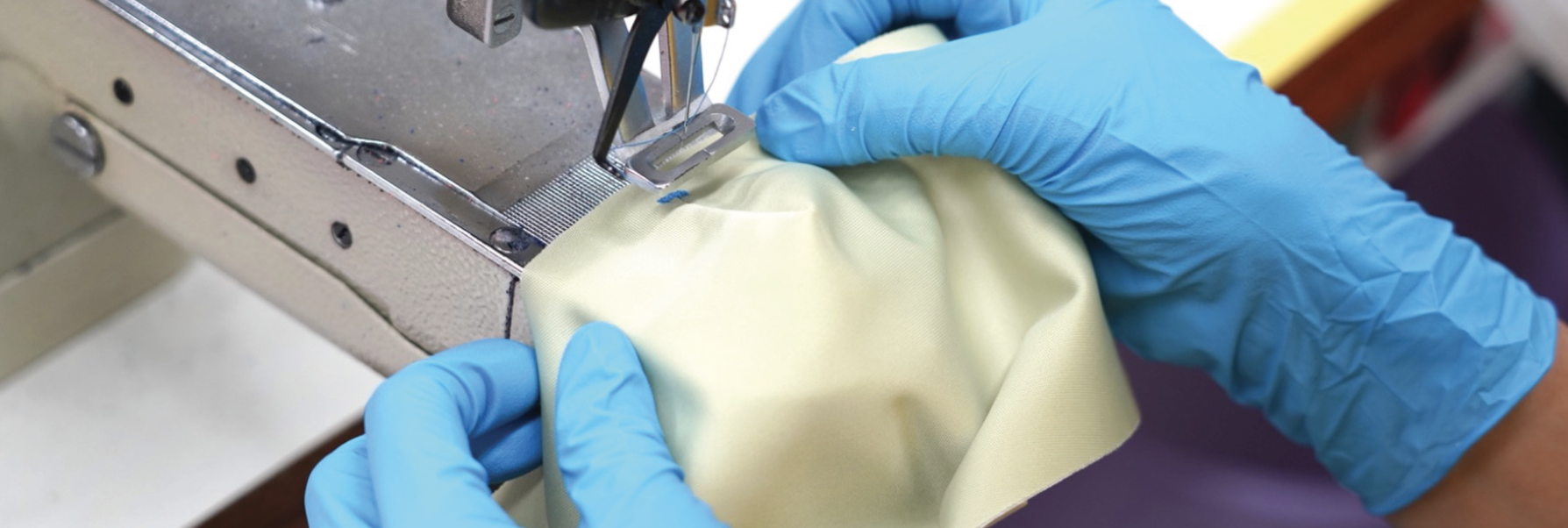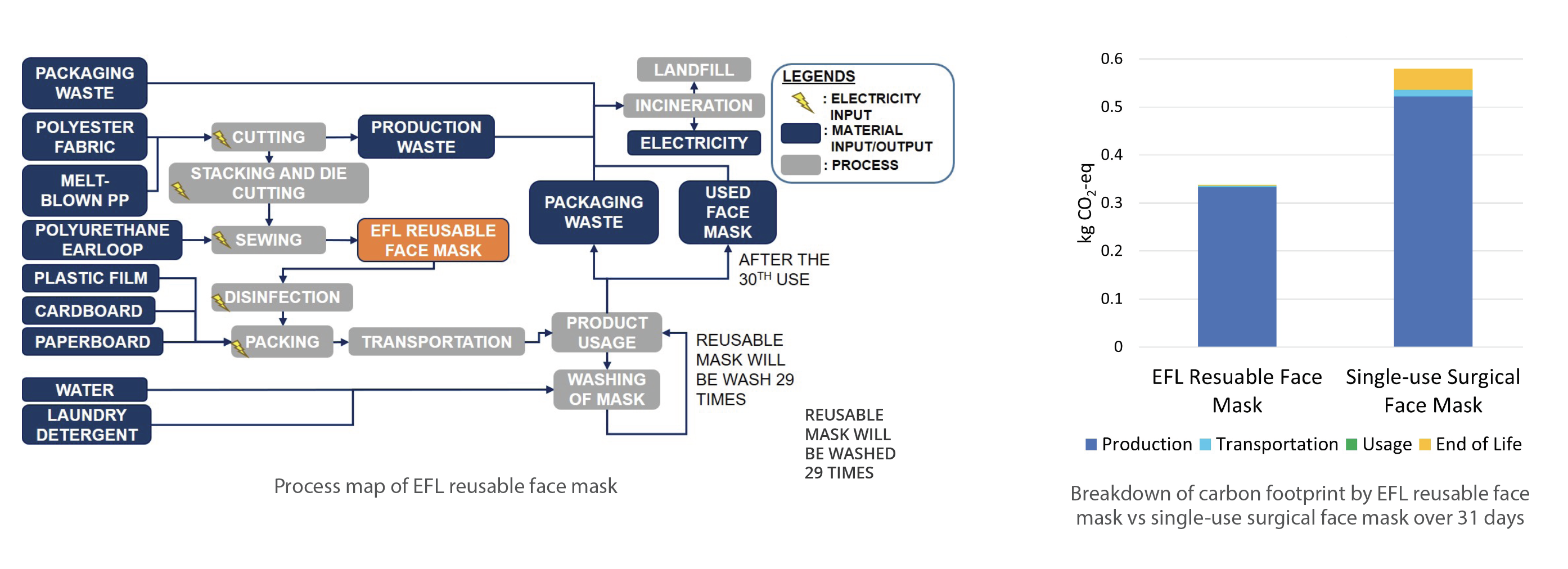
- Press Releases
- Industry Updates
- SIMTech Manufacturing Matters
- Manufacturing Matters
- SIMTech 30th Anniversary
- Events
- ASPEN2022
- BCA Green Mark (Platinum) for Healthier Workplaces and Laboratories
Are reusable face masks truly sustainable?
Quantifying product sustainability using Life Cycle Assessment (LCA)

Since the start of the COVID-19 pandemic, there has been an increase in face mask consumption as the general population is encouraged to wear a face mask beyond their domestic space. While there is no denying in the importance of face mask usage during the pandemic, there are concerns on the amount of plastic waste generated from single-use surgical face mask usage.
Despite the potential environmental repercussions, the consumption of face masks is unlikely to recede in the new norm. Therefore, the general population can explore alternative face mask options that have a lower environmental impact to help alleviate the environmental burden of face mask usage. One such option would be the embedded filtration layer (EFL) reusable face mask. This face mask was developed in Singapore at the start of the pandemic as an alternative face mask option to address the shortage of single-use surgical face masks.
Intuitively, the use of a reusable device would be naturally thought of as the greener alternative to the single-use version of the device. However, this is not always true. Previous studies on reusable and disposable medical devices have shown that there is no definitive version of a device that will have a lower environmental impact.
In this work, Life Cycle Assessment (LCA) was used to quantify the environmental impact of the EFL reusable face mask by calculating its entire life cycle from material extraction to incineration. The environmental impact categories that were evaluated include climate change, fossil fuel depletion, metal depletion, water depletion, freshwater ecotoxicity, freshwater eutrophication, marine ecotoxicity, marine eutrophication, human toxicity, and waste generated.
Using the environmental impact of single-use surgical face masks as a benchmark, the EFL reusable face mask is clearly the more environmentally friendly option. EFL reusable face masks will have a lower emission value of at least 30% compared to single-use surgical face masks for climate change, fossil fuel depletion, metal depletion, freshwater ecotoxicity, marine ecotoxicity, and waste generated. This reduction is especially significant when scaled by the face mask consumption of Singapore’s population.
In addition, the work also explores the environmental impact that arises from different face mask usage habits and waste treatment processes through the scenario analysis. The work has been published in the journal Resources, Conservation and Recycling under the title “Life cycle assessment of single-use surgical and embedded filtration layer (EFL) reusable face mask”.
For more information, please contact
Dr Jonathan Low
Sustainability & Life Cycle Engineering Division (SLED), at sclow@SIMTech.a-star.edu.sg
A*STAR celebrates International Women's Day

From groundbreaking discoveries to cutting-edge research, our researchers are empowering the next generation of female science, technology, engineering and mathematics (STEM) leaders.
Get inspired by our #WomeninSTEM
.png?sfvrsn=843a4005_8)